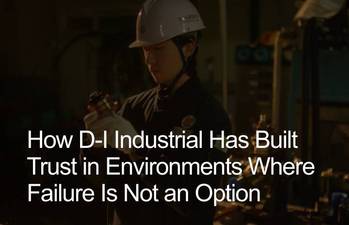Capsized Towboat Spills Diesel in Alabama

A partially sunken towboat is discharging diesel fuel near Florence, Ala.The U.S. Coast Guard said on Monday it is responding to the incident alongside partner agencies after Coast Guard Sector Ohio Valley received notification at approximately 2 p.m. Sunday from RMB Marine Services reporting the towboat Michael R had partially sank in the Port of Florence, adjacent to mile marker 257 on the Tennessee River.Pollution responders from Coast Guard Marine Safety Detachment Nashville…
Scania to Power MSRC's Oil Response Vessels
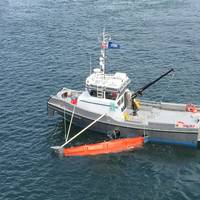
Engine manufacturer Scania on Thursday announced it has been selected by Marine Spill Response Corporation (MSRC) to power its new fleet of five 47-foot Skimmer oil response vessels, built by Rozema Boat Works. Powered by twin DI13 087M 700hp engines provided by Cascade Engine Center, the new vessels will be delivered in 2023.Formed in conjunction with the Marine Preservation Association in 1990 by oil and gas companies, MSRC is a not-for-profit organization with U.S. Coast Guard OSRO classification in every U.S. captain of the port zone except Alaska.
Salvors Remove Diesel Fuel from Capsized Liftboat Seacor Power
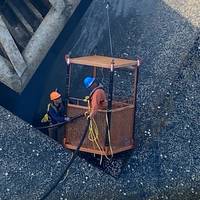
Salvage crews have removed all diesel fuel from the tanks of capsized liftboat Seacor Power in the Gulf of Mexico, the U.S. Coast Guard said on Wednesday.Salvors removed approximately 20,363 gallons of diesel fuel from the overturned vessel using the hot tapping method, which involves drilling into the fuel tanks, making a hose connection, and transferring the fuel to portable tanks, the Coast Guard said.Approximately 4,500 gallons of hydraulic fluid still on board will need to be removed after the vessel is raised as the tanks are currently inaccessible…
Partially Sunken Tug Leaking Oil in St. Croix

An abandoned, partially sunken tugboat is actively discharging oil within Krause Lagoon in St. Croix, U.S. Virgin Islands, the U.S. Coast Guard said Tuesday.The amount of oil discharged from the tug Cape Lookout remains unknown, while the maximum potential discharge based on the size of the vessel fuel and lube oil tanks is approximately 48,000 gallons of fuel and 2,000 gallons of lube oil, the Coast Guard said, adding it is unknown how full both tanks are at this time.“Due to the immediate pollution threat this vessel represents to the environment and surrounding area…
2018 Green Apple Spill Exercise
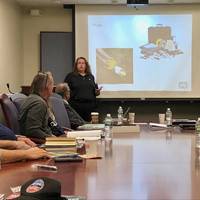
Committed to providing tugboat and towing vessel operators with a platform to meet regularity requirements and collaborate with local resources, the annual event also reminds us that Proper Planning Prevents Poor Performance.On September 28 2018, American Marine Associates, LLC (AMA) coordinated and hosted the 3rd annual Green Apple Spill Response Exercise in Bayonne, NJ. The Green Apple Spill Response exercise was established specifically for the tugboat and towing vessel industry operating in New York Harbor.
Vessel Response Plans: A Primer for the US Waterfront
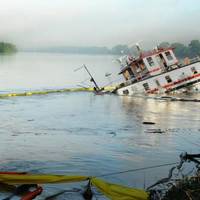
Congress enacted the Oil Pollution Act of 1990 (OPA 90) a mere 17 months after the disastrous oil spill following the grounding of the tanker Exxon Valdez in Prince William Sound. Among the many provisions in the voluminous bill was a detailed planning requirement. For the first time, tank vessels and facilities handling oil in bulk were required to develop extensive plans for responding to a worst case discharge of oil into waters of the United States. As regards vessels and marine-transportation-related facilities, the U.S.
Spill Prevention & Response: Old Lessons, New Challenges
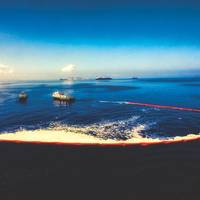
Emerging spill response trends fit into two big categories: technology and a combination of economic and social forces. Both will shape what comes next.Florida’s stunning Tampa Bay stands out as exactly the kind of place where you have to think about hazardous materials emergencies. It was 25 years ago, on August 10, 1993, that a freighter collided with two barges near the entrance of Tampa Bay, causing a fire and spilling over 32,000 gallons of jet fuel, diesel, and gasoline and about 330,000 gallons of heavy fuel, devastating beaches, wildlife and habitat.
National Response Corporation Acquires SWS Environmental Services
National Response Corporation (NRC) has acquired SWS Environmental Services (SWS), significantly adding to its national footprint and expanding its full line of compliance and environmental services. Since 1974, SWS has been providing a broad range of essential services including industrial, hazardous waste management, emergency response, marine, and remediation services to the energy, manufacturing, education, healthcare, chemical, transportation, government, and retail sectors. Employing over 250 personnel, SWS is a customer‐focused company with 21 locations servicing 17 states throughout the Midwest, Gulf Coast, and Southeastern U.S.
USCG Recognizes T&T Marine Salvage’s Capabilities

T&T Marine Salvage, a member company of the Teichman Group, founded in 1957, received a new certification by the U.S. Coast Guard to detect and recover non-floating oils. T&T is the first Coast Guard recognized Salvage and Marine Firefighting service provider to receive this new Oil Spill Removal Organization classification initiated by the U.S. Coast Guard in 2016. This new certification is in recognition of T&T’s years of experience conducting non-floating oil detection and recovery operations and their expansive inventory of hydrographic…
Salvage and Marine Firefighting Verification
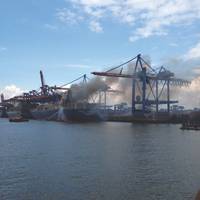
The U.S. Coast Guard regulations regarding salvage and marine firefighting (SMFF) as elements of vessel response plans (VRPs) for tank vessels have been in place since December 31, 2008. On September 30, 2013, these regulations were expanded to include non-tank vessels with a capacity of 2,500 barrels or greater of fuel oil. The VRP requirement was established by the Oil Pollution Act of 1990 (OPA 90). be resubmitted for approval of each significant change. The salvage and marine…
Sustainable (R)Evolution: A Multipurpose Maritime Education Fleet
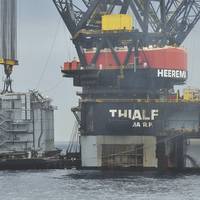
Efforts have been underway since 2014 to procure government funding for new training vessels for the State Maritime Academies (SMA). Pending bills in Congress at this time would provide $300 million for the construction of the first of four training vessels for the SMAs with a total of $1.2 billion for the proposed four vessel package. Domestic maritime stakeholders have other options, however. These alternatives are attractive for more than one reason. Separately, the U.S. offshore energy sector has experienced a significant decline in demand and production…
Revised PREP Guidelines: What You Should Know

On April 11, 2016 the U.S. Coast Guard (USCG) released the revised 2016 National Preparedness for Response Exercise Program (PREP) Guidelines. The new guidelines will become effective on June 10, 2016. Established under the Oil Pollution Act of 1990, the PREP guidelines were developed to provide a mechanism for compliance with the vessel response plan (VRP) drill and exercise requirements. Use of the PREP Guidelines is voluntary, however, compliance with the PREP guidelines will satisfy these requirements.
NRC Aquires ENPRO Services
National Response Corporation (“NRC”) announced today it has acquired ENPRO Services, Inc., adding to its national footprint and expanding its full line of environmental, emergency response, and industrial services. Since 1983, ENPRO has been providing essential environmental, emergency response, and industrial services to the energy, transportation, industrial, insurance, and municipal sectors. Employing over 250 personnel, ENPRO is a customer-focused services company with 9 offices and 2 waste treatment, storage, and disposal facilities (“TSDF”) throughout the Northeastern U.S. NRC provides a broad range of environmental, emergency response…
Marine Salvage & Oil Spill Response Insights
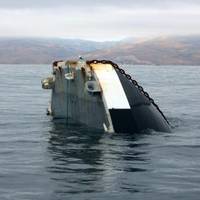
Last month Maritime Reporter had the good fortune to receive insights from a trio of maritime salvage leaders – Paul Hankins, Tim Beaver & Jim Elliott – garnering insights on one of the most challenging and ever-changing sectors of the maritime market. It was recently written “salvors have become more closely tied to Oil Spill Response Organizations (OSROs).” Why? Hankins The Oil Pollution Act of 1990 (OPA90) defines how all stakeholders will respond to potential or actual oil spill responses.
Insights: Steven Candito, President & CEO, NRC

This month’s featured INSIGHTS executive is Steven A. Candito, President and CEO of the National Response Corporation (NRC). He has extensive experience with OPA 90 compliance issues with particular focus on vessel owner and insurance matters. Candito was previously an attorney with Haight Gardner Poor & Havens, specializing in maritime litigation and environmental law. He also served as a marine engineer aboard Exxon USA’s domestic tanker fleet from 1980 to 1985. Candito is a graduate of Hofstra University School of Law and the United States Merchant Marine Academy.
Interview: Oil Spill Repsonse Insights from MSRC's Benze: Steven T. Benz, President and CEO, Marine Spill Response Corporation (MSRC)

As President and CEO of MSRC, Steve Benz presides over the largest oil spill response company in the United States (and worldwide). In that position since January 1996, he has during that tenure, overseen several critical phases in the Company’s evolution. These include a major restructuring in the late 1990s to make it more competitive; growth throughout the 2000-2009 period, including acquisition of several companies; leadership in overseeing MSRC’s role in responding to the 2010 BP spill in the Gulf of Mexico…
OSRO: The Child of Necessity

Most people in the maritime industry in the United States are familiar with the concept of the Oil Spill Removal Organization (OSRO). It is one of the many quiet successes of the Oil Pollution Act of 1990 (OPA 90) and has enhanced the prompt and efficient cleanup of spills of oil and hazardous materials into waters of the United States. The curious thing about OSROs is that they are not mentioned in OPA 90. OSROs, as a recognized industry, were created following enactment of OPA…
Ramp-Up of NTV Oil Spill Resoures in Alaskan Waters
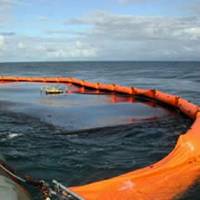
The Marine Spill Response Corporation (MSRC) and Alaska Maritime Prevention and Response Network (Network) have formed a "Strategic Alliance" to support Non-Tank Vessels (NTVs) in meeting new Federal regulations and enhance oil spill response in Western Alaska and Prince William Sound. The announcement was made at the recent Alaska Regional Response Team meeting in Anchorage. As a part of this Alliance, the Network will join the Marine Preservation Association (MPA), the funding organization for MSRC.
Non-tank Vessel Response Rules – Their Impact Examined
Long awaited, much hyped, the new rules require compliance in January. Will industry and more importantly, the response community, be ready? In September, the U.S. Coast Guard published the long awaited Non-tank Vessel Response Plan (NTVRP) and Other Response Plan regulations. The U.S. Coast Guard cites “Improved preparedness and reaction to an incident, including a worst case discharge, and improved effectiveness of shore-side and onboard response activities” as the primary benefits of the new rule. For all affected vessels, a mandatory compliance date of January 30, 2014 looms large the porthole. The regulations impact self-propelled non-tank vessels of 400 gross tons or greater that operate in navigable waters of the United States and carry any kind of oil as fuel for main propulsion.
Steamship Mutual: US Vessel Response Plans – Contingency Plans
Washington State – Alaska – Non tank final rule & Washington State – Contingency Plan requirements. We refer to our circular no. B.613. As stated in that circular, every tank vessel and every other vessel over 300 GT is required under State law to file a contingency plan prior to entry into the waters of Washington State but that instead of filing his own plan an owner can subscribe to an umbrella oil spill contingency plan. Since publishing the abovementioned circular, Washington State Maritime Co-operative (WSMC) has changed its enrolment agreement and the version with footer “WSMC Enrolment Agreement – December 2013” conforms with the International Group’s guidelines on vessel response plans.
Nontank Vessel Response Plan Required by January 30, 2014

The "Nontank Vessel Response Plans and Other Response Plan Requirements" (NTVRP) final rule, which was published in the Federal Register on September 30, 2013, requires vessel owners or operators of nontank vessels 400 gross tons and above to prepare and submit oil spill response plans for vessels operating on the navigable waters of the United States by January 30, 2014. Because many of the requirements in the NTVRP final rule are statutory mandates and regulatory constraints on our ability to extend the implementation date…
NRC, Resolve Expand Firefighting and Oil Spill Response
National Response Corporation (NRC) and Resolve Marine Group announce the expansion of their 1Call response coverage for all vessels trading in U.S. waters. The service offers tanker and nontank vessel owners and operators full, single-source coverage in compliance with latest U.S. Coast Guard regulations for Salvage and Marine Firefighting (SMFF), and Oil Spill Removal Organization (OSRO). This announcement reflects the U.S. Coast Guard’s final rule in the Nontank Vessel Response Plans and Other Response Plan Requirements published in the Federal Register. The rule requires owners or operators of vessels trading in U.S. waters to submit response plans naming OSRO and SMFF providers by January 30, 2014.
Insights: Joseph Farrell, Jr. President & CEO, RESOLVE Marine Group, Inc.

Joe Farrell needs no introduction to the marine salvage community or, for that matter, MarineNews readers. Originally from the Boston, Mass., area, he began by enlisting in the United States Coast Guard, eventually attending the U.S. Navy diver school, becoming a ship’s diver. After two years at sea and diving in Arctic waters, he volunteered for service and became an explosives advisor, offloading ammunition ships in Vietnam. Eventually, Farrell became a civilian diver at the U.S.



